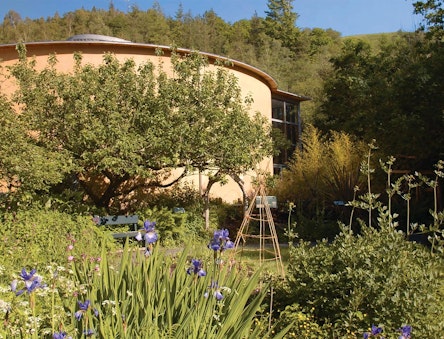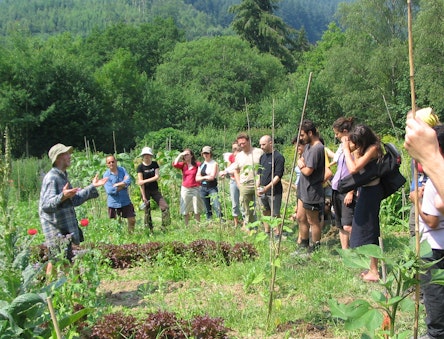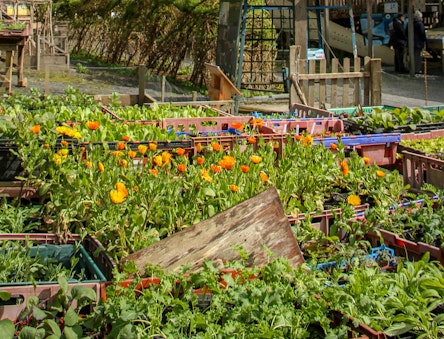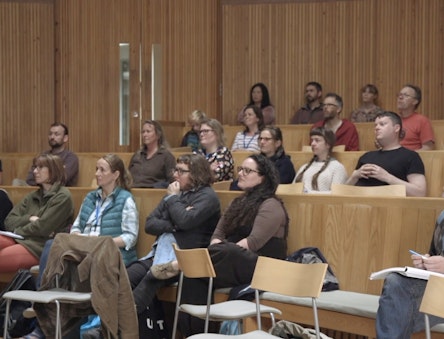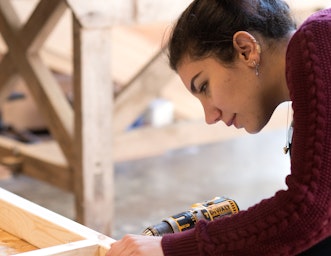
The Science of Sustainable Food Production (Sold out)
June 30, 2025 - July 04, 2025Home » The Science of Sustainable Food Production (Sold out)
Join a CAT student teaching week to take an in-depth look at the variety of techniques and growing approaches to sustainable food production and the impact of these on the environment.
Through a series of lectures, discussions, and practical activities you will learn alongside our postgraduate students on our MSc courses including our Masters in Sustainable Food and Natural Resources.
You will experience what it might be like to study on one of our postgraduate courses at CAT and gain invaluable knowledge and skills on the impacts of different food production methods on biodiversity and ecosystem services and carbon emissions, alongside studying the science behind the actual and potential approaches to plant breeding and food growing.
Key information
- Duration: five days
- Upcoming dates: Monday 30 June to Friday 4 July 2025
- Start and finish times: starts at 9am and ends at 3pm on the last day
- Fees: £700
- Includes: tuition, all materials, lunch (accommodation can be booked separately)
- Full board accommodation is available for this course: £325 for a single person bedroom. (This option will become available once you click “Available” or “Book Now” below)
- What to bring: good boots and waterproof clothing is advised
- Terms and Conditions:
- you must be 18 years or over to attend our courses.
- For full list of terms and conditions click here
Who is this course aimed at?
This week is aimed at people who wish to have a taster of studying at postgraduate level at CAT and want to gain knowledge of sustainable food production.
This includes those with a general interest in growing or food production, local or community food growers who wish to gain an academic understanding of the science behind sustainable food production techniques, and those working in food policy, agriculture or the food industry.
What you will learn:
You will study the impacts of different food production methods on greenhouse gas emissions, carbon sequestration, soil health, biodiversity and ecosystem services.
You will also explore key scientific advances, debates and uncertainties in the science of sustainable food production and develop key skills in using data to analyse food production methods and their impact on the environment.
Topics covered include:
- Impact of crop production on greenhouse gas emissions, carbon sequestration, soil conservation and ecology, and wider ecosystem services.
- Science of GMOs, organic agriculture, agroecology, conventional agriculture, Permaculture and other food production methods and technologies.
How will I learn:
Through pre-reading and some pre-recorded introductory lectures, live in person lectures, discussions, group activities and practical activities at CAT. This module may also include a field trip to IBERS (Institute of Biological, Environmental and Rural Sciences) at Aberystwyth University.
This short course is part of the teaching week for the MSc module International Zero CO2 Energy. Please be aware there may be some activities and content during the week only available to students, where an activity isn’t appropriate for the short course attendee, we will endeavour to arrange a replacement activity.
Meet your tutor:
Dr Rebecca Kent
Rebecca Kent is a senior lecturer on the MSc Sustainable Food and Natural Resources course and teaches on the Food Consumption and Production, Restoration Ecology and the Science of Sustainable Food Production modules.
Dr Jane Fisher
Jane is a lead academic at CAT. Mainly involved in the management, she also teaches lectures and practicals for both on-site and distance-learning students, particularly for the MSc Sustainability and Adaptation courses. Jane previously worked as a BSc programme leader in ecology and conservation at Liverpool John Moores,
Additional tutors:
Alongside the module leader and expert Graduate School staff, teaching sessions are led by a range of guest speakers and lecturers currently working in the sector and academia who join students on-site or through live streams.
Related Pages
Related events

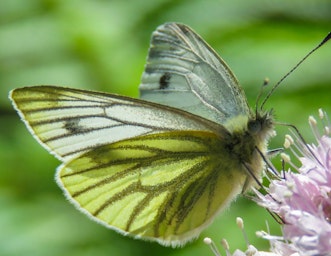
Gardening for Nature
21st June 2025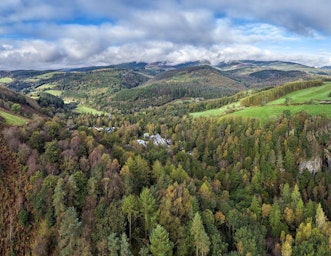
On-site Open Day: MSc & MRes Courses
27th June 2025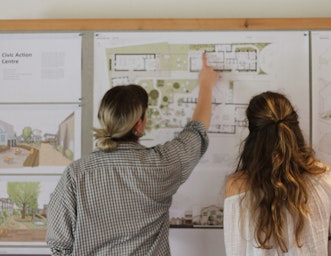
On-site Open Day: MArch Sustainable Architecture course
27th June 2025Add accommodation to your booking
Would you to stay at CAT during your short course? Simply add the short course to your cart and then choose from the option provided.
Accommodation option:
- Full board and accommodation while your course is on – £325 single
Any questions please email courses@cat.org.uk
Searching Availability...

